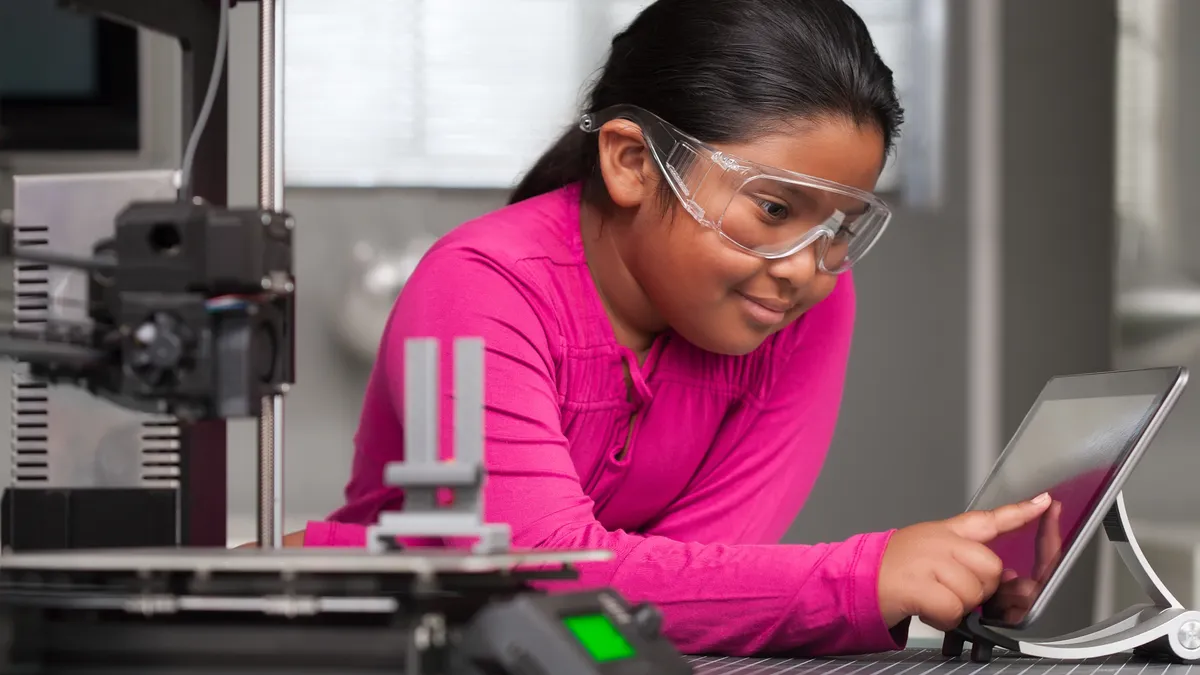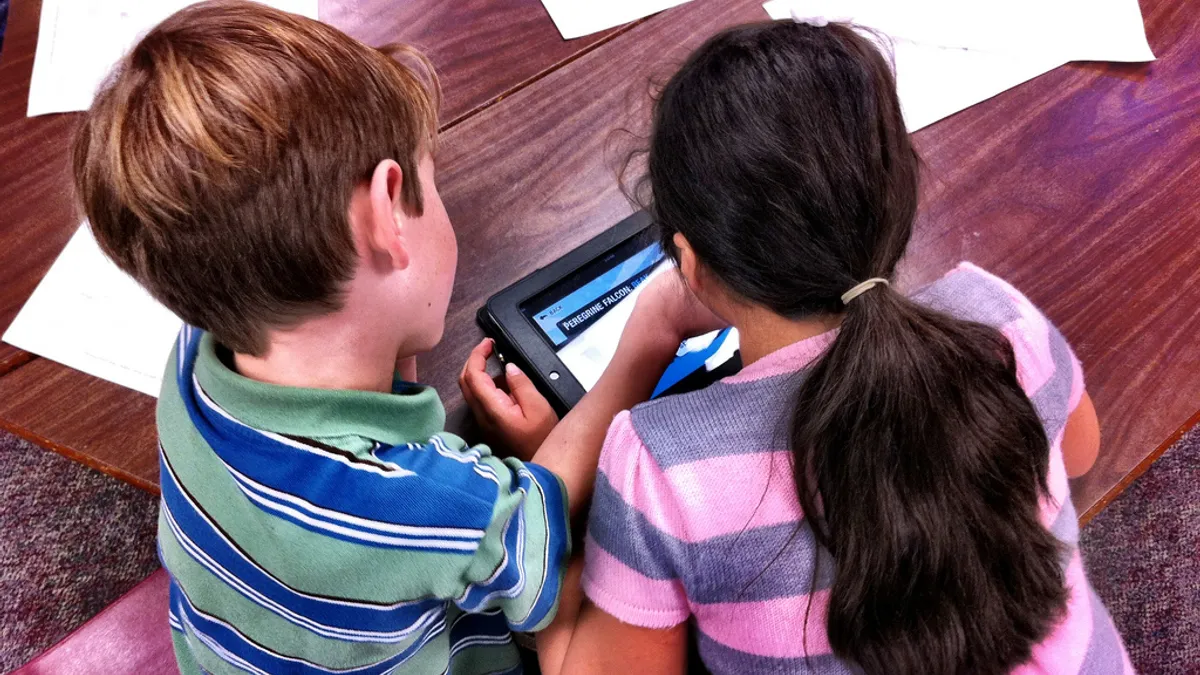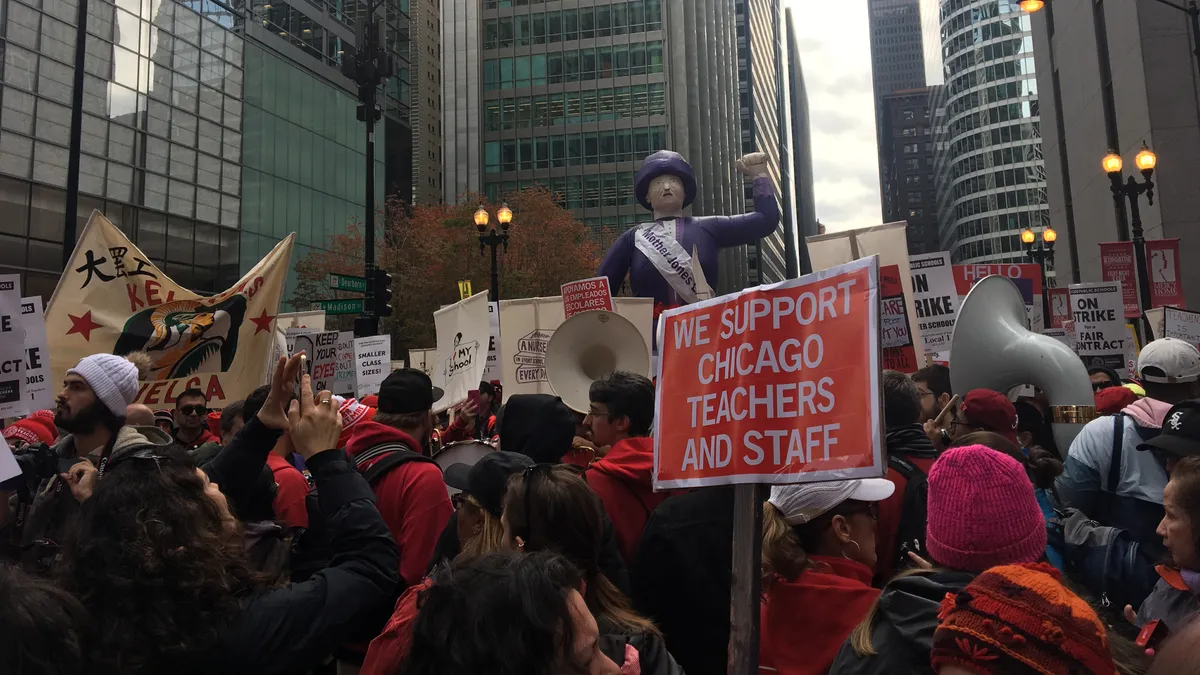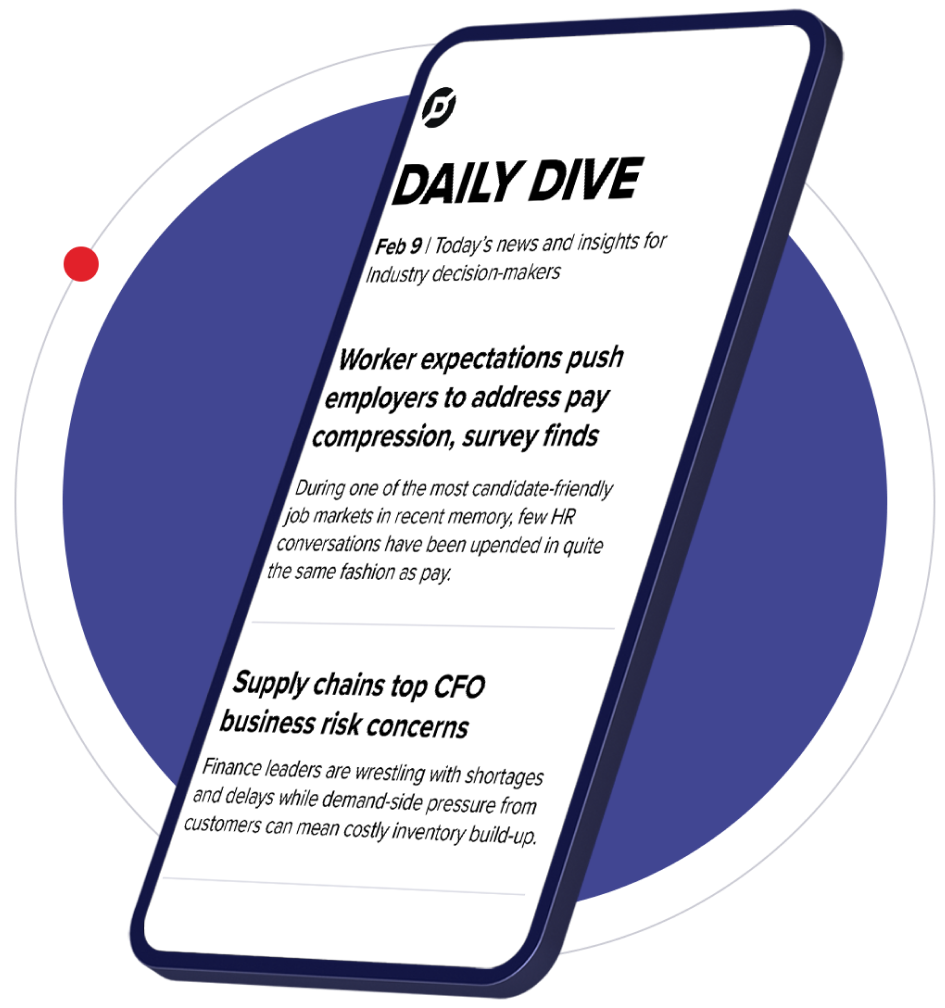Curriculum: Page 54
-
How to emphasize, teach and use computational thinking
Once aligned to coding and computer science, the skill can be woven into other areas of curriculum and assessment.
By Lauren Barack • Dec. 18, 2019 -
Girls Take Flight program recruits San Diego high school girls to pilot drones
The program's biggest challenge has been finding female drone pilots to teach, as experts say having women role models is key to getting more girls in STEM.
By Lauren Barack • Dec. 18, 2019 -
 Explore the Trendline➔
Explore the Trendline➔
 Permission granted by Benetech
Permission granted by Benetech Trendline
TrendlineSTEM
From AI to quantum physics, STEM learning opportunities in K-12 are expanding to keep pace with related fields.
By K-12 Dive staff -
Student-led initiatives tie civic action, advocacy to social studies lessons
Curricula that encourage students to get involved with causes they support can further their understanding of activist movements and events.
By Shawna De La Rosa • Dec. 18, 2019 -
Q&A
Curricular Counsel: How Salt Lake City strengthened music, arts programming
Tiffany Hall, executive director for teaching and learning, says a whole-child focus means ensuring all kids have a broad range of opportunities to explore.
By Roger Riddell • Dec. 11, 2019 -
Helping students develop metacognitive skills to understand the 'why' of learning
Students often ask why they need to learn something, unable to connect the dots between assignments and the real world, but one teacher suggests three guidelines that can help.
By Lauren Barack • Dec. 11, 2019 -
Rural student enrollment in AP Computer Science Principles course more than doubles
Besides rural students, the College Board is making efforts to recruit more girls and underrepresented students into STEM classes.
By Shawna De La Rosa • Dec. 11, 2019 -
Report: Popular online teaching materials 'poorly aligned' with academic standards
Websites reviewed by the Thomas B. Fordham Institute say teacher ratings are critical to determining content quality, but experts suggest the ratings may not be reliable.
By Naaz Modan • Dec. 10, 2019 -
Reconsidering lessons and resources to promote body positivity
SEL activities can help build understanding in the classroom, which may also have an impact on bullying.
By Lauren Barack • Dec. 4, 2019 -
Kentucky district adopts unconventional process to fish for gifted students
The approach measures how quickly students respond to and think creatively about lessons presented on unusual topics with no prior exposure.
By Shawna De La Rosa • Dec. 4, 2019 -
Texas likely to expand ethnic studies curriculum with African American history course
The course outline would begin centuries prior to the arrival of enslaved Africans in America, with a goal of showing students African civilizations were as sophisticated as those in Europe.
By Shawna De La Rosa • Dec. 3, 2019 -
Recess, physical ed help students build sense of community
Playtime provides opportunities to build positive connections during the school day while strengthening culture and crucial SEL skills.
By Lauren Barack • Nov. 27, 2019 -
Will synthetic animals lead schools to cut the real thing from dissections?
Synthetic frogs are expensive but reusable, and they avoid exposing students to carcinogens like formaldehyde.
By Shawna De La Rosa • Nov. 27, 2019 -
3 ways state agencies, nonprofits transport students beyond the classroom
A variety of partnerships nationwide are giving students a chance to learn first-hand in fields experiencing labor shortages.
By Shawna De La Rosa • Nov. 20, 2019 -
Chicago school adds structured play to boost social skills, learning
Eliza Chappell Elementary School administrators hope skills like conflict resolution picked up through play spill over into the classroom.
By Lauren Barack • Nov. 20, 2019 -
Is productive struggle the secret sauce in learning?
An instructional coach says allowing students to struggle through to a solution develops grit and perseverance, which will serve them well in the workforce.
By Shawna De La Rosa • Nov. 20, 2019 -
5 steps to addressing impeachment in classroom discussions
While covering the Trump impeachment inquiries could "come at a cost" because of the topic's partisan nature, experts say it is an invaluable teaching moment if done with tact.
By Naaz Modan • Nov. 20, 2019 -
Beyond NAEP: Experts seek ways to address US 'reading crisis'
A new Educational Testing Service report recommends ways assessments can better diagnose gaps in knowledge and improve learning.
By Linda Jacobson • Nov. 18, 2019 -
Q&A
Curricular Counsel: How a Minnesota district looks beyond assessment to measure success
For Assistant Superintendent Jana Hennen-Burr, the community's role in developing strategies around student outcomes is a critical piece of the puzzle.
By Roger Riddell • Nov. 13, 2019 -
To foster a joy of reading in students, abandon time logs
A 5th-grade teacher found eliminating process-driven tasks, which made reading feel more like a chore than a fun activity, developed more confident, enthusiastic readers.
By Lauren Barack • Nov. 13, 2019 -
New Jersey, Illinois among latest to mandate LGBTQIA curriculum
As more states pass laws requiring inclusive curriculum, a dearth of resources continues presenting a challenge in implementation.
By Shawna De La Rosa • Nov. 13, 2019 -
For better college essays, focus on helping students write about themselves
The task is an uncomfortable one for many, but a number of strategies and resources are available to help put students at ease.
By Lauren Barack • Nov. 6, 2019 -
Deep Dive
3 ways to expand Native American curriculum beyond Thanksgiving myths
Because generalizations tied to the holiday don't paint the whole picture of the numerous cultures that were spread across the Americas, experts say schools should encourage students to "dig deeper."
By Lauren Barack • Nov. 6, 2019 -
Census Bureau launches Statistics In Schools program ahead of 2020 Census
Experts suggest incorporating statistics and data collection into curriculum could further students' job opportunities later in life.
By Shawna De La Rosa • Nov. 6, 2019 -
5 big challenges confronting districts — and how they're overcoming them
Balancing school security with a nurturing environment and recovering from teacher strikes are among challenges districts will continue to face in the coming year.
By Naaz Modan • Nov. 6, 2019 -
Integrating social-emotional learning in PE nets gains for schools
As emphasis on "whole child" education grows, experts suggest physical education is an ideal place to thread social-emotional learning throughout curriculum.
By Naaz Modan • Nov. 6, 2019


